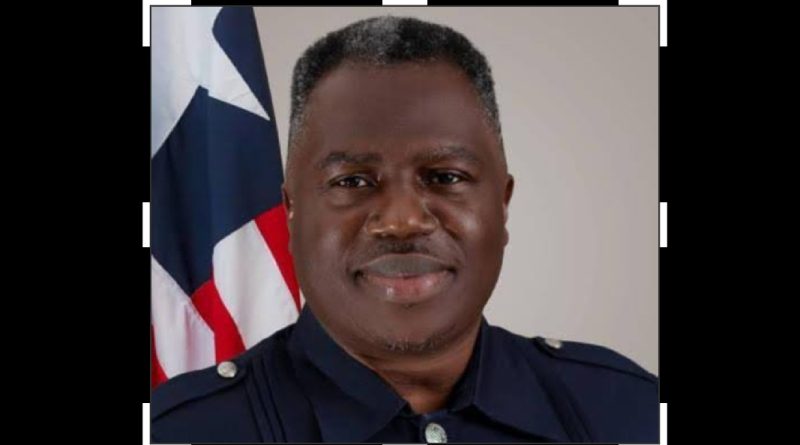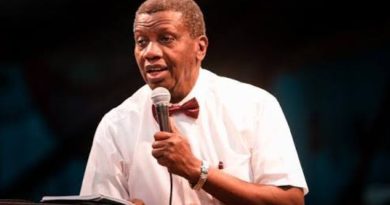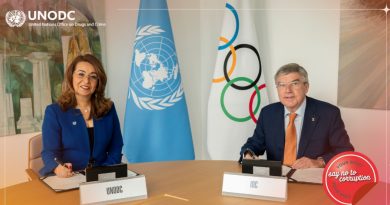Jeremiah Koung’s Cerebral Cortex for Good leadership
By Emmanuel Daudu (Nigeria)
The political landscape of Liberia, a nation with a rich history and a complex fabric of socio-political dynamics, has been shaped by the contributions of numerous individuals whose aspirations and actions have influenced the course of its governance. One such individual, who has recently risen to prominence, is the Honourable Jeremiah Koung – a figure that encapsulates the quintessence of contemporary Liberian politics.
Jeremiah Koung’s ascent within Liberia’s political sphere has been marked by a striking trajectory, symbolising simultaneously the trials and triumphs that characterise the nation’s politics. Born and nurtured in a country marred by civil conflict and economic trials, Koung’s narrative is ostensibly that of a steadfast pursuit of political influence, underscored by an adherence to the principles of dedication and service to his compatriots.
First and foremost, the impact of Koung’s political strategy, underscored by his advocacy for health and social welfare, is not to be underestimated. Prior to assuming his current role, he was instrumental in the establishment of a notable hospital in Nimba County, which is considered a bastion of his influence. This palpable commitment to health care lends credence to the assertion that Koung is not merely a political figurehead, but a servant of the public interest, championing initiatives that matter deeply to the citizenry.
However, the purely idealistic depiction of any political figure is often tempered by the realities of the political machinations they must navigate.
Moreover, Koung’s tenure as Vice President is laden with expectations. With a focus on economic rejuvenation and national unity, his office has been tasked with the formidable challenge of navigating Liberia through the quagmires of post-conflict rebuilding and socio-economic enhancement. The global context within which Koung operates is challenging, a point underscored by The Liberian Observer, which emphasises the difficulty of enacting substantive policy changes in an era of global economic uncertainty.
The foresight and adaptability required in such a role are monumental, but they offer a canvas upon which Koung’s capacity and potential can be projected. Should he succeed in actualising the economic aspirations and fostering unity he espouses, his tenure would be etched into the annals of Liberian political history as an exemplar.
It is here that one must consider the essence of political acumen – not solely in translating aspiration into action but in marshalling the unity of diverse interests towards a common good.
The Liberian Vice President’s international undertakings reflect another dimension of his influence. As head of the Liberian delegation to international forums, Koung’s role in articulating and advancing Liberia’s interests in the global arena is pivotal. The prestige and gravitas he brings to international negotiations have a direct bearing on how Liberia is perceived and treated on the world stage. It is in these arenas that the diplomatic finesse of a country’s leadership is put to the test, and by many accounts, Koung has acquitted himself with a level of competency that deserves acknowledgment
Critically, a nuanced study of Koung’s influence must also engage with the discourse on governance and the investment in Liberia’s youth. The demographic reality of Liberia is that it is a nation with a sizable youth population, many of whom look to leaders like Koung for direction and inspiration. His approach to tackling issues such as education, employment, and entrepreneurship will indelibly shape the future of countless young Liberians and, by the same token, the country’s prospects for sustained progress and stability.
It is impossible to foretell the ultimate impact of Jeremiah Koung’s vice-presidency with certitude; political landscapes are, by nature, shifting sands shaped by many hands.
However, the potency of Koung’s position lies as much in the present as in any future legacy. It is how he manoeuvres through the labyrinth of current socio-political pressures, how he addresses the immediate concerns of his fellow Liberians, and how he reconciles divergent expectations into a coherent vision for Liberia that will define his tenure.
Jeremiah Kough’s ascendancy to the vice-presidency of Liberia is a subject ripe for argumentative discourse. His political prowess is underscored by his dedication to public welfare, his involvement in contentious political skirmishes, and his navigation of the complex interplays of governance. Moreover, his impact on international relations and investment in the future generation compounds the intricacies of his influence. While one may contend with various aspects of his political journey, it is beyond dispute that Koung’s role is a microcosm of the broader dynamics that shape Liberia’s ongoing narrative. As with all political figures, the true measure of his legacy will be determined by the outcomes of his decisions and the perceptions of those he serves. Time, as ever, will be the ultimate arbiter of Jeremiah Koung’s mark on Liberian political history.
In the last few years, the West African nation of Liberia has navigated through a labyrinth of political and socioeconomic challenges to gradually cement its democratic credentials. Part of this ongoing transformation involves the individuals at the helm of governance, notably the Vice President, Jeremiah Koung.
The Vice Presidency is pivotal to the function of the Liberian Government. It acts as the second highest political office and is integral in ensuring that the wheels of democracy keep turning. Vice President Koung, since assuming his role, has been overwhelmingly engaged both nationally and internationally to influencing peace, projects, programs across board to better the economy of the nation and the lives of its citizens.
Before Koung’s ascendancy to vice presidency, his tenure as a legislator had been marked by various contributions to the country’s political and legislative landscape. Democracy thrives on political stability, which is fostered by the implementation of policies that emanate from a legislative framework. Koung’s legislative career, which involves the sponsoring of bills and the active participation in the legislative processes, provided a bedrock for his current role as the Vice president of Liberia.
One of the hallmarks of a thriving democracy is the accountability of its leaders to its citizenry. In this administration, efforts to increase transparency, chiefly initiated by Koung, have been commended by various watchdogs and international agencies. His push to open up government dealings to public scrutiny demonstrates a commitment to a democratic dividend that not only strengthens governance but also empowers citizens.
Vice President Koung has been a champion for enhancing civic engagement, thereby promoting one of the key tenets of democracy – the involvement of citizens in the decision-making processes. His support for initiatives that encourage community involvement in governance matters has been a testament to his belief in a government ‘of the people, by the people, for the people’.
Democracy is not just about the political system; it also encompasses the socio-economic development of a nation. Vice President Koung has often highlighted the importance of education as a fundamental democratic right that enables individuals to participate fully in society. By backing educational reforms and advocating for social programs that aim to lift individuals out of poverty, Koung is contributing to the creation of an informed and empowered populace that is essential for the health of any democracy.
Another dimension where Vice President Koung’s influence has been palpable is in the sphere of human rights and gender equality. Access to rights and equal treatment under the law are critical components of a democracy, and strides in these areas reflect the health of a nation’s political system. Koung has publicly expressed support for policies that fight discrimination and promote the rights of all Liberians, regardless of gender, ethnicity, or religion.
This commitment could potentially see an increase in respect for human rights and more opportunities for women, thus enriching Liberia’s democratic fabric, which is goal 5 of the Sustainable Development Goals, SDGs. This makes him automatically a He for She Ambassador.
Democracy is an ongoing journey, and Liberia’s road is no exception. Vice President Jeremiah Koung’s tenure has undeniably coincided with a period of burgeoning democratic change. His promotion of accountability, civic engagement, educational investment, and a focus on human rights and gender equality are initiatives that seem to drive the democratic dividends that Liberians are beginning to reap. While it is true that much work remains to be done, and criticism must be acknowledged, it is also fair to recognize the potential positives stemming from the Vice President’s actions and policies.
As Liberia continues to navigate its democratic path, the office of the Vice President, occupied by Jeremiah Koung, will remain instrumental in shaping the direction of the country. With continued emphasis on these democratic principles and the engagement of its citizens, Liberia is poised to enjoy the fruits of a robust and mature democracy, ultimately benefiting all Liberians.
In the realm of Liberian politics, the figure of Jeremiah Koung, as he ascends to the role of Vice President, carries with it a plethora of expectations and apprehensions concerning the nurturing and enhancement of democratic principles in Liberia. Acclaimed for his leadership and revered by his adherents, Koung now faces the pivotal challenge of aligning his perceived leadership style with the broader democratic mission necessary for progression in Liberia’s sociopolitical context.
Jeremiah Koung, a former member of the Liberian House of Representatives and now the incumbent Vice President, is perceived by many as an individual with a strong mandate to lead. His ascendancy in Liberian politics is marked by his prior commitment to addressing the issues faced by his constituents in District 1 of Nimba County.
Koung’s efforts have often been praised for being community-centric, focusing on tangible developments such as health care and education. However, it is imperative to explore how the personal leadership qualities of Koung translate into his capacity and willingness to propagate and uphold democratic principles in his role as Vice President.
A democratic mission in the Liberian context is not simply a political necessity but also a collective aspiration for a society that has been deeply scarred by civil strife and governance challenges. It revolves around the fortification of institutions, the safeguarding of human rights, and the establishment of an accountable governance model that resonates with Liberians’ democratic aspirations. As the Vice President, Koung’s role in this democratic mission is critical, as his authority and actions could potentially influence the direction of Liberian democracy.
Proponents of Jeremiah Koung argue that his leadership posterior is fundamentally aligned with democratic values. They highlight his community-based initiatives, grassroots connection, and responsiveness to constituents’ needs as indicators of his democratic commitment. Koung’s defenders also point out his advocacy for transparency in government dealings, as evidenced by his push for accountability measures in public projects and his own alleged lifestyle of relatively modest means compared to other politicians.
Moreover, Koung’s leadership style—often described as consultative and inclusive—mirrors the participatory governance model central to democracy. Through engaging community voices in the decision-making process and fostering a culture of participation, Koung demonstrates a commitment to involving the citizenry in governance, a cornerstone of democratic systems.
To evaluate Koung’s potential to further Liberia’s democratic mission, one must cautiously balance the arguments for and against his democratic alignment. On one hand, there seems to be a genuine connection between Koung’s community focus and the nurturing of a participatory democracy. Since democracy thrives on active citizen engagement, his style of leadership could stimulate broader civic participation and public debate, providing a fertile ground for democratic ethos to flourish.
Conversely, the true measure of a democracy goes beyond community engagement—it necessitates adherence to the rule of law, protection of minority rights, and a steadfast commitment to political pluralism.
As an influential and ascendant figure in Liberian politics, Jeremiah Koung is poised at a crossroads that will either consolidate or undermine Liberia’s democratic mission. While his leadership style has elements that suggest a democratic disposition, it is imperative that he espouses consistent democratic values through transparent and accountable governance. In doing so, Koung has the potential not only to enhance his leadership perception but to solidify his vice presidency as a critical juncture in Liberia’s democratic journey.
Emmanuel Huleji Daudu is the
Editor-In-Chief, Africa Security Investigation News,
Global Founder,
World Sustainable Development Goals Organization (WSDGO)
+234 9036683775
daudupress@gmail.com
info@worldsdgs.org




